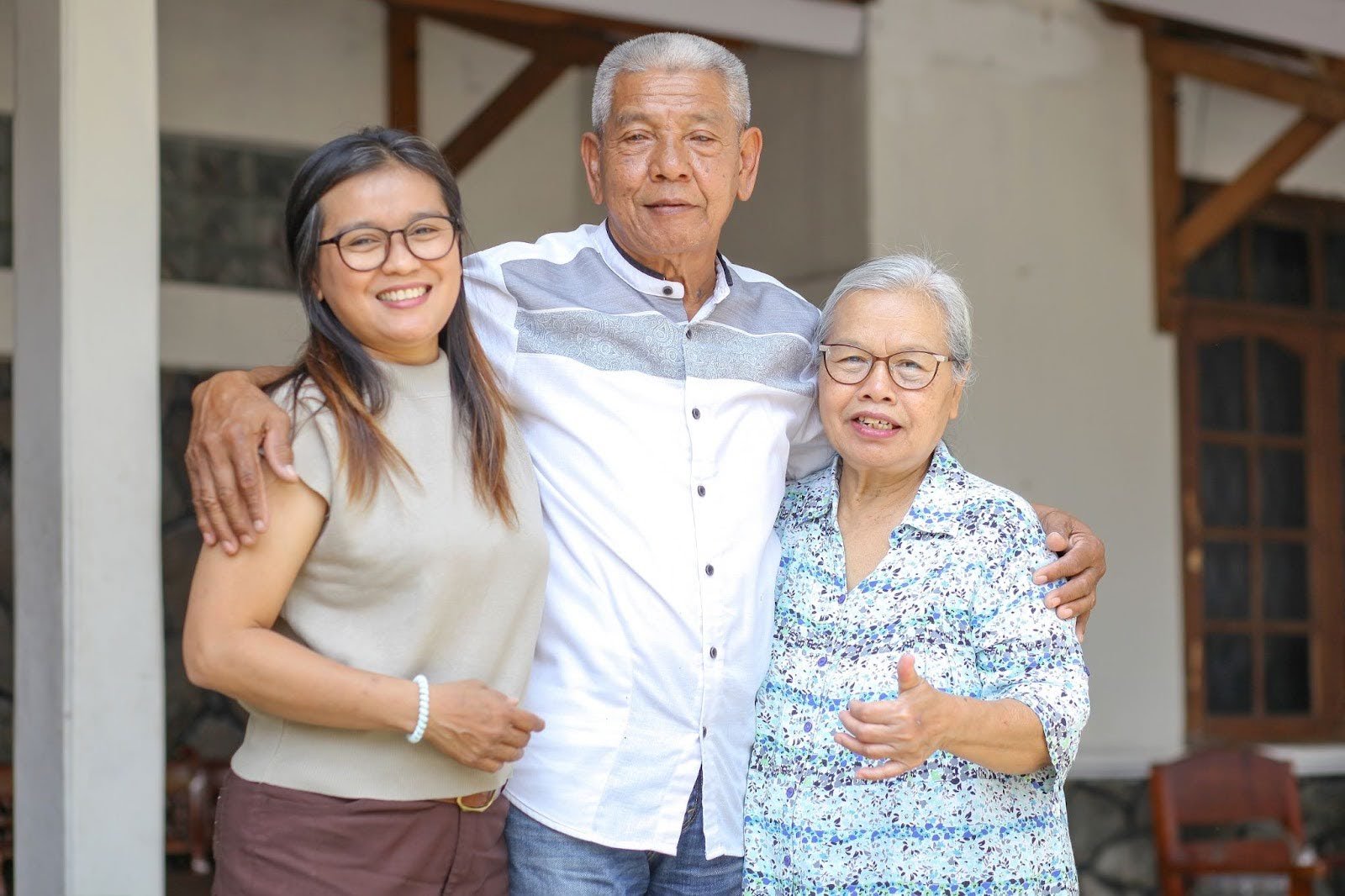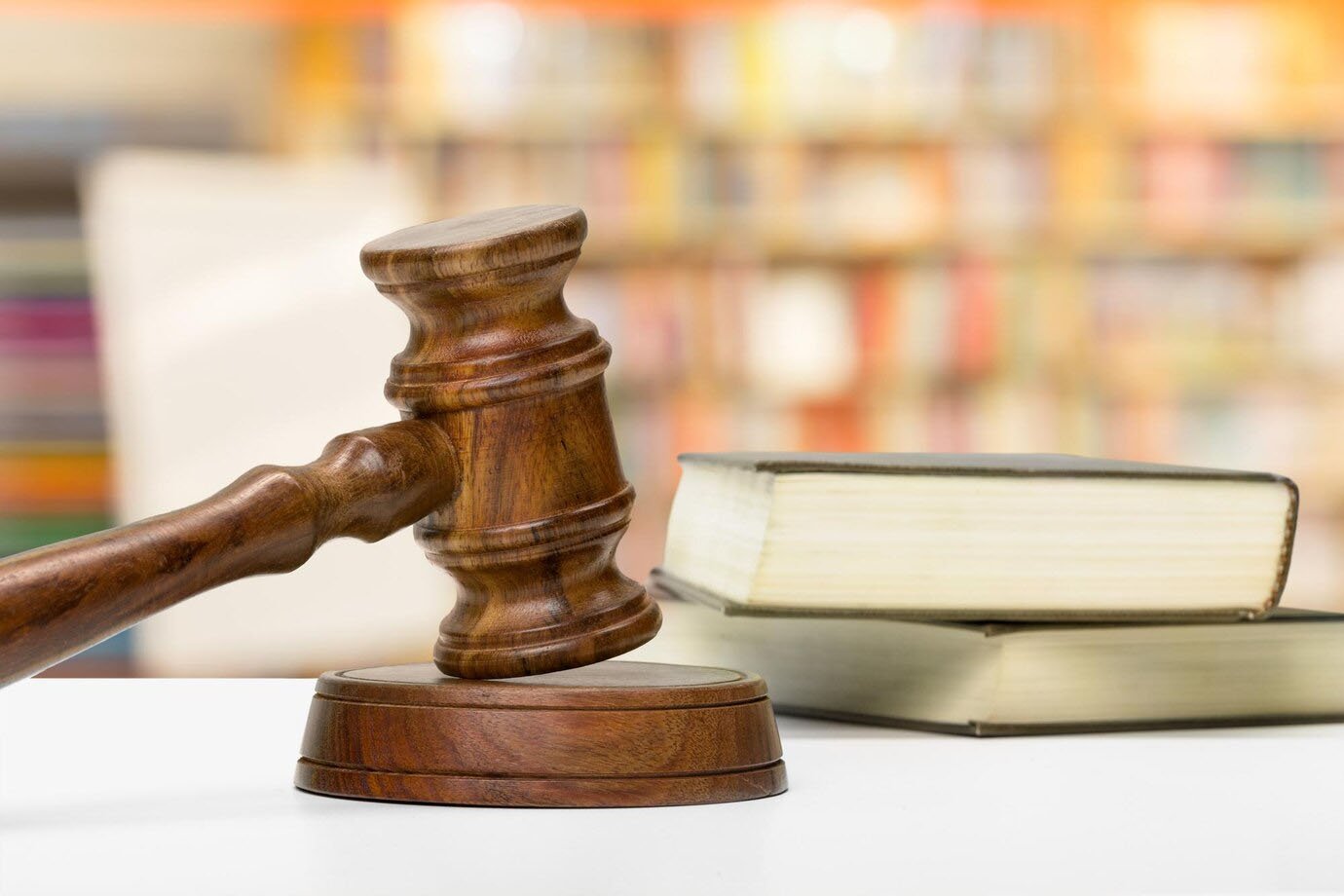
Caring for ageing parents is a deeply rooted value in many Singaporean families. But when adult children fall short of their responsibilities, intentionally or otherwise, it can lead to emotional strain and financial hardship for the elderly. Many seniors do not realise they have legal options when familial support breaks down.
That is where the Maintenance of Parents Act in Singapore comes in. Introduced in 1995, this law allows elderly parents to claim maintenance from their children through the Tribunal for the Maintenance of Parents.
While the number of cases has declined over time, from a three-year average of 170 cases between 2008 and 2010 to about 30 cases a year from 2017 to 2022, the need for awareness and support remains, according to a speech by Mr Eric Chua from the Ministry of Social and Family Development.
In this article, we explain how the Act works, who it protects, and what you need to know if you or someone you know is affected
What Is the Maintenance Of Parents Act In Singapore?
The Maintenance of Parents Act in Singapore is a law that allows elderly parents to claim financial support from their children if they are unable to care for themselves.
It was enacted in 1995 to reinforce the responsibility of adult children to look after their aged parents. The Act applies to Singapore citizens or permanent residents aged 60 and above.
If parents cannot get maintenance voluntarily, they can apply to the Tribunal for the Maintenance of Parents for a maintenance order. The tribunal can order children to provide monthly allowances or a lump sum payment.
This legal route is meant to be a last resort, encouraging families to resolve disputes through conciliation before formal proceedings begin.
The Act ensures that seniors who have contributed to raising their children are not left behind in old age. It balances personal responsibility with legal support when family relationships break down.
For more detailed information on the Act and its provisions, Singapore residents can refer to the Maintenance of Parents Act and the Maintenance of Parents Rules available online.
Who Is Eligible for Maintenance?

Eligibility for maintenance under the Maintenance of Parents Act depends on age, residency, financial need, and relationship to the child.
To qualify for maintenance, a parent must meet the following criteria:
- Age: The applicant must be 60 years old or above.
- Citizenship/Residency: They must be a Singapore citizen or permanent resident.
- Need for Support: They must be unable to support themselves financially through income, savings, or other means.
- Relationship: The claim must be made against a child, either biological or legally adopted.
In special cases, a person under 60 may also qualify if they are unable to work due to illness or physical/mental infirmity.
The Act is designed to help elderly individuals who genuinely need support and cannot obtain it from their children voluntarily.
Circumstances That Require Children to Provide Support
Children may be legally required to provide financial support to their parents if the parent meets the eligibility criteria and the child is financially capable.
This obligation is based on the child’s expected income and overall financial situation. The relationship between the parent and child, including the history of care and support, is also taken into consideration.
In cases where the child is able to provide support but refuses, the parent can seek maintenance through the legal channels provided by the MPA, including filing a claim with the Tribunal for the Maintenance of Parents (TMP).
Exceptions To Eligibility
Not all parents are automatically entitled to receive maintenance. There are specific exceptions under the MPA, particularly in cases involving abandonment, abuse, or needy and neglected parents.
If a parent has a history of abandoning, abusing, or neglecting the child from whom they are seeking maintenance, they may face difficulties in claiming support.
Requirement To Declare Record Of Child Abuse
When parents file for maintenance under the MPA, they must declare whether they have any record of abandoning, abusing, or neglecting the child they are seeking maintenance from. This requirement is outlined under Section 3A of the MPA.
The Commissioner for the Maintenance of Parents will search official databases for such records, including personal protection orders, criminal convictions related to offences against the child, and investigation files from the Ministry of Social and Family Development’s (MSF) Protective Services.
If such a record is found or declared, the parent must obtain permission from the Tribunal to proceed with the maintenance claim. The Tribunal may grant permission if there is a good arguable case that:
- The parent did not abandon, abuse, or neglect the child.
- The child should maintain the parent on just and equitable grounds.
However, even if permission is granted, the child has the right to present evidence that the parent was abusive, neglectful, or abandoned them. In such cases, the Tribunal may still dismiss the claim if it finds that the parent is at fault.
How to File a Maintenance Claim?

Filing a claim under the Maintenance of Parents Act in Singapore involves several steps. Here’s a detailed guide on how parents can file a claim and the necessary documents required.
Application Process
- Filing in Person: You need to apply in person at the Tribunal for the Maintenance of Parents Registry. If you are unable to do so due to health or other reasons, the application can be made on your behalf by:
- Any member of your family
- A person who is caring for you
- A person or organisation looking after you (with prior approval from the Ministry of Social and Family Development).
- Required Documents: Ensure that you bring along the following:
- The National Registration Identity Card (NRIC) of the parent and the person applying on your behalf (if applicable).
- A letter of authorisation is needed if someone else is filing the application.
- Names, last known addresses, and NRICs of the children against whom you are filing for a maintenance order.
- Bank account passbook or bank statement.
- Information on living expenses, assets, and savings.
- Medical reports, if any.
- Notice of Application: Once the application is filed, both you and your children named in the application will receive a Notice of Application.
- Responding to the Notice: Your children must respond by filing an Answer using the MOP prescribed form within 14 days. They can also submit additional relevant information to support their response.
Conciliation Process For Resolving Maintenance Issues
Conciliation is essential in resolving maintenance issues under the Maintenance of Parents Act. It offers a chance for both parents and children to reach a mutual agreement without resorting to legal action.
Conciliation at the Commissioner’s Office is the first step in addressing maintenance disputes. If the parent seeking maintenance has no record of abandonment, abuse, or neglect towards the child, conciliation is mandatory before filing an application with the Tribunal.
Steps in the Conciliation Process
- Consultation: A Conciliation Officer will discuss the maintenance issues with the parent or their representative. If the parent wishes, the officer will contact the children for conciliation. If the children cannot be located, efforts will be made to trace them, and the parent may be referred to other agencies for further assistance.
- Conciliation Sessions: These sessions may be held separately if the parties do not wish to attend together. The goal is to help both parents and children understand each other’s perspectives and work towards a solution. The duration of the process varies, with simple cases potentially being resolved within a month, while more complex situations may take longer.
- Agreement: If an agreement is reached, a memorandum with the agreed terms, such as the amount, date, and mode of contribution, will be signed. This can be made into an order endorsed by the Tribunal if both parties agree. If the child fails to comply with the agreement, the parent can either go to the Family Court or file a formal claim at the Tribunal, depending on whether the agreement was endorsed. To set an appointment for conciliation, contact the Commissioner’s Office at 6471 6313 or email msf-enquiry_cmp@msf.gov.sg.
Conciliation For Destitute Parents
Destitute parents—those admitted into a welfare home due to their inability to support themselves—are provided additional support during the conciliation process. The Maintenance of Parents Act ensures that these individuals receive fair treatment and assistance.
Legal Protections for Destitute Parents
Under Section 12B of the Maintenance of Parents Act, the Commissioner may invite the child of a destitute parent to participate in conciliation if it is believed that the child can provide maintenance and if the parent does not have a record of abandoning, abusing, or neglecting the child.
Support Available During Conciliation
Destitute parents have access to legal aid and social services to ensure that they are fairly represented during conciliation.
The Ministry of Social and Family Development may also provide additional support, ensuring that the parent’s basic amenities and financial responsibility are taken into account.
What Happens at the Tribunal for the Maintenance of Parents?

Filing for a Maintenance Order at the TMP
If a parent and child cannot resolve their dispute through conciliation, the Tribunal for the Maintenance of Parents (TMP) is the final legal avenue. The Tribunal will assess the application and decide whether to grant or dismiss the parent’s request for a maintenance order.
Application Process
To file a maintenance application against your child, you must do so in person at the Secretariat Office of the Tribunal. The required application form is available at the Office and on the Maintenance of Parents website.
It’s important to note that lawyers are not permitted to represent either party at the Tribunal. Instead, the Commissioner will assist parents in filing a claim.
Required Documents
When filing your application, ensure you have the following documents:
- NRIC of the parent.
- Bank account passbook or statement.
- Information on assets and savings.
- Details of living expenses.
- Medical reports, if applicable.
- Name, NRIC number, and last known address of your child.
This process is free of charge.
If a parent is unable to file an application due to physical or mental incapacity, Section 11 of the Maintenance of Parents Act allows the application to be made on the parent’s behalf by:
- Any family member.
- Any person responsible for the parent’s care.
- Any authorised individual.
Attending Mediation With A Conciliation Officer
Before your case is heard by the Tribunal, you and your children will be referred to mediation with a Conciliation Officer. The aim is to resolve the dispute amicably without going to Court.
Importance of Mediation
Mediation is a crucial step in the process, offering parents and children the chance to reach a mutual agreement. The Conciliation Officer is key in facilitating discussions and helping both parties find a resolution.
The Mediation Process
- Preparation: Both parents and children should fully and honestly disclose all relevant information and documents to the Conciliation Officer and each other. This transparency is essential for effective mediation.
- Mediation Session: The date for the mediation session will be included in the Notice of Application. The mediation session is typically scheduled within four weeks of the Notice of Application.
- During Mediation: The Conciliation Officer will meet with both parties jointly and individually to work through the maintenance issues. If additional information is needed, the Conciliation Officer may consult other sources with the parties’ consent.
- Settlement: If the mediation is successful, both parties can endorse a maintenance agreement prepared by the mediator. This agreement can be made into a consent order by the Tribunal. If the mediation fails, the case will proceed to a Tribunal hearing.
Mediation with a Conciliation Officer is designed to help parents and children reach a fair and mutually acceptable resolution. It’s a vital step in the process, offering an opportunity to avoid the complexities of a Tribunal hearing while still addressing the maintenance needs of the elderly parent.
What the Tribunal Considers Before Granting Support

When assessing maintenance applications under Section 5 of the Maintenance of Parents Act (MPA), the Tribunal evaluates various factors to ensure a fair decision.
1. Child’s Ability to Provide Support
The Tribunal first checks if the child can afford to support the parent after meeting their own needs.
- Income and Assets: This includes salary, property, and other financial resources.
- Existing Commitments: The Tribunal considers the child’s ongoing expenses for their spouse and children.
- Past Contributions: Any past financial or caregiving support the child has already provided to the parent is also taken into account.
2. Parent’s Financial Needs
The Tribunal then evaluates whether the parent truly needs support.
- Housing and Medical Costs: It considers reasonable living and healthcare expenses.
- Income and Savings: The parent’s current financial resources and how they’ve been managed are reviewed.
- Health Condition: Any physical or mental disability is factored in when assessing support needs.
3. Special Circumstances
If the parent abused, neglected, or abandoned the child, the Tribunal may dismiss or reduce the maintenance order. The burden of proof lies with the child to show this history.
4. Mediation Requirement
Before the Tribunal hears the case, parties must first go through mediation to try resolving the dispute amicably.
In short, the Tribunal will only grant maintenance if it is just and equitable—meaning the child can afford it, and the parent genuinely cannot support themselves despite their efforts.
Possible Outcomes Of A Tribunal Hearing
After hearing a maintenance application, the Tribunal may issue one of several possible orders:
- Maintenance Order: If the Tribunal determines it is just and equitable for the child to provide maintenance, a legally binding maintenance order may be issued. This order mandates the child to pay maintenance to the parent. If multiple children are involved, the Tribunal will apportion the maintenance amount fairly among them.
- Dismissal of Application: The Tribunal may dismiss the application if it finds that the parent abandoned, abused, or neglected their children. Additionally, under Section 14(7)(a) of the MPA, the Tribunal may dismiss applications deemed frivolous or vexatious, meaning they lack sufficient grounds to proceed or are intended to annoy the child.
- Adjournment: The Tribunal may choose to adjourn the hearing to a later date if further evidence or testimony is required. This can happen if a neutral third party or additional documentation is needed.
Once a maintenance order is issued, it becomes a legal obligation for the child to comply. If the child fails to pay maintenance as ordered, the parent can seek enforcement through the Family Justice Courts.
This enforcement process ensures that parents seeking maintenance receive the support they are legally entitled to, facilitating their financial stability and overall family development.
Conclusion About The Maintenance Of Parents Act
The Maintenance of Parents Act (MPA) in Singapore plays a crucial role in safeguarding the financial well-being of elderly parents. This guide has outlined the process of claiming maintenance, the factors the Tribunal considers, and the potential outcomes of maintenance applications.
By providing a structured legal framework, the MPA ensures that family members fulfil their responsibilities towards ageing parents, balancing both legal obligations and moral duties.
Ensuring financial support for elderly parents is not just a legal matter. It reflects our societal values and respect for those who raised us. Whether it’s through maintenance orders or monthly allowances, the Act serves as a reminder that we must uphold our commitments to our family members, especially as they age.
If you have questions or face challenges related to the Maintenance of Parents Act, we encourage you to seek professional legal advice. At Tembusu Law, our dedicated team of family and divorce lawyers is here to guide you through any difficulties you may encounter in this area of law.
Whether you need help navigating maintenance claims or other family law matters, we provide clarity and support every step of the way.
Contact Tembusu Law today for a free consultation and ensure that your legal matters are in capable hands.
Frequently Asked Questions About The Maintenance Of Parents Act
Can A Parent Be Denied Maintenance Under The Maintenance Of Parents Act In Singapore?
Yes, a parent can be denied maintenance if they abused, neglected, or abandoned their child. If the child proves this, the Tribunal may reduce or dismiss the claim. Parents with a history of abuse now also need permission from the Tribunal before they can file a claim.
What’s The Difference Between A Lump Sum And Monthly Payment Under The MPA?
A lump sum payment is a one-time amount given for big expenses like medical bills. A monthly allowance is a regular payment to help with ongoing needs like food and utilities. The Tribunal will decide which is more suitable based on the situation.
How Is Maintenance Amount Decided By The Tribunal?
The Tribunal looks at both the parent’s needs and the child’s ability to pay. This includes medical costs, living expenses, and income levels. The goal is to make sure the support is fair for both sides.
Can A Parent Withdraw Their Claim For Maintenance In Singapore?
Yes, a parent can withdraw their claim at any time before the Tribunal issues a final order. They must notify the Tribunal and the other party in writing. After an order is made, withdrawing may require the Tribunal’s approval.